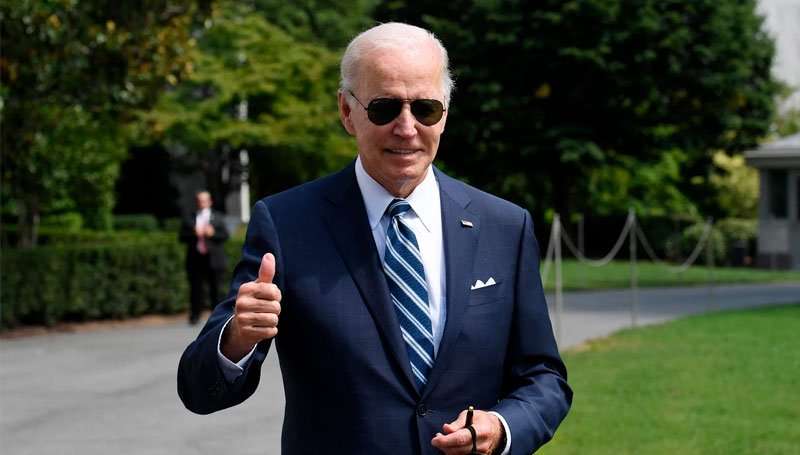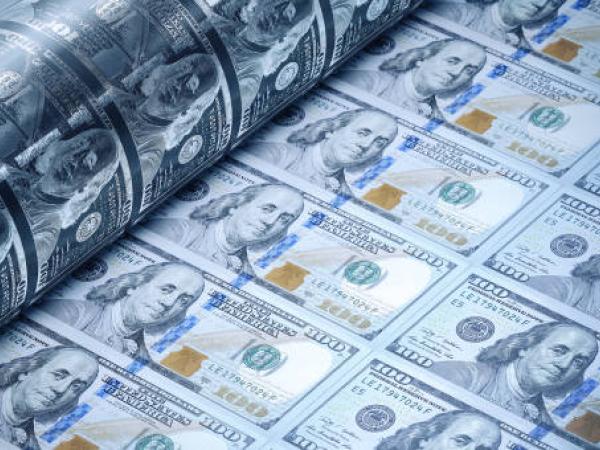The president of the United States, Joe Biden, announced yesterday the pardon of all those convicted of possession of marijuana and fulfilled a demand of his supporters one month before the mid-term legislative elections.
“I am announcing a pardon of all prior federal offenses for simple possession of marijuana,” he said in a statement.
This is a significant step towards decriminalizing that drug and dealing with judicial practices that primarily impact non-white people.
The president called on the health and judicial authorities to “rethink the penalties associated with marijuana, at a time when the movement for its decriminalization finds strong support in the United States.”
He insisted, however, on the importance of continuing the fight against the trafficking and sale of cannabis to minors.
Biden’s decision also benefits thousands of people convicted of that crime in the District of Columbia. He also called on governors to issue similar pardons for those serving marijuana-related sentences under state law, which account for the majority of pot possession cases.
In his statement, the president noted that the measure reflects his position that “no one should be in jail for simply possessing or using marijuana.”
“Too many lives have been upended due to our failed approach to cannabis use,” he added. “It’s time to correct those mistakes.” According to the White House, no one is currently in federal prison solely for “simple possession” of the drug, but the pardon could help thousands of people overcome obstacles to rent housing or find employment.
“There are thousands of people who have prior federal convictions for possession who may be denied employment, housing or educational opportunities as a result,” Biden said. “My action will help alleviate collateral consequences stemming from those failures.”
The waiver does not cover convictions for possession of other drugs or charges related to the production or possession of marijuana with intent to distribute.
“The Department of Justice will diligently administer the President’s proclamation, restoring civil, political and other rights to those who were found guilty,” the department said in a statement. “In the coming days, the Pardon Attorney’s Office will begin implementing a process to provide affected individuals with pardon certificates.”
“Erasing the criminal records of people convicted of drug possession is a matter of social justice,” applauded influential progressive legislator Pramila Jayapal. Advocacy groups praised Biden’s announcement, with Kassandra Frederique, executive director of the Drug Policy Alliance, calling the organization “thrilled.”
“This is incredibly overdue,” Frederique said. “There is no reason why people should be burdened with criminal records, which prevents them from obtaining employment, housing and countless other opportunities, for something that is legal in 19 states and decriminalized in 31 states.”
The lower house of the US Congress in early April approved a bill, introduced by Democratic Party lawmakers, aimed at removing cannabis from the federal list of dangerous drugs. The text must still be ratified by the Senate.
Nineteen of the 50 US states, as well as the capital Washington, have already legalized recreational marijuana use for adults.
In most entities, its medicinal use is authorized in different degrees, from oils that contain a low level of THC (tetrahydrocannabinol, a psychoactive substance in cannabis) to pure marijuana.
Only a handful of ultraconservative and rural states, such as Idaho, Wyoming or Nebraska, remain uncompromising. Interestingly, marijuana is still illegal at the federal level. Biden’s announcement on Thursday symbolizes a first step toward his reclassification.
Marijuana use among young Americans reached record levels last year, according to a new study. As a whole, the American population is overwhelmingly in favor of legalization.
According to a Pew Research Center survey last year, 91 percent of adults think marijuana should be legal, for medical use, recreational use, or both.
Sales of legal cannabis in the United States were around 25 billion dollars last year and all experts predict that the sector will grow rapidly in the coming years.


















